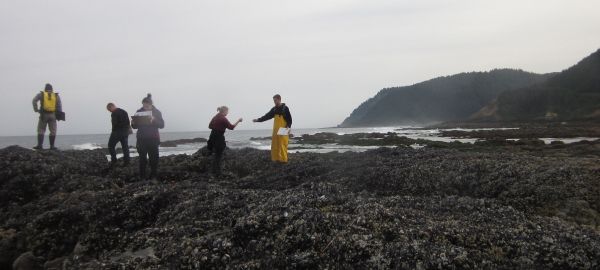Ecological communities on the Oregon coast are being subtly destabilized by the pressures of climate change despite giving an appearance of stress resistance, new research by Oregon State University shows.
The findings are important because assessing and understanding how plants, animals and other life forms respond to a warming planet is critical to human welfare, lead author Bruce Menge said.
The study published today in the Proceedings of the National Academy of Sciences shows that ecological communities in Oregon’s rocky intertidal zone have grown less stable for at least a decade though their structure – the organisms that comprise them – has basically stayed the same.
The community destabilization arises from decreasing resilience – the ability to bounce back from disturbance. The findings suggest other ecological communities around the globe that project a look of stability actually wouldn’t appear that way upon close inspection of how their member organisms collectively react in the face of disruption.
Read more at Oregon State University
Image: Intertidal zone monitoring. (Photo Credit: Elizabeth Cerny-Chipman)


